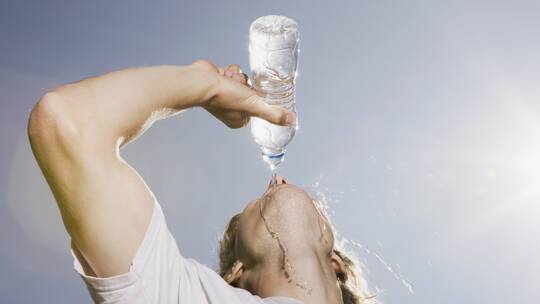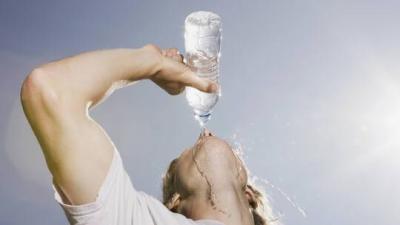Drinking enough water daily is a simple practice that provides several health benefits, from improving memory to aiding nutrient absorption and increasing energy. According to experts, it is essential to know the adequate amount of water needed each day to ensure these benefits, as drinking water incorrectly can cause what is known as "water intoxication." Water intoxication occurs when one drinks so much water that the kidneys cannot excrete it quickly enough, leading to a dilution of electrolytes, primarily sodium, in the blood. Although rare, water intoxication can be fatal if not treated immediately. Below are the symptoms of water intoxication and how it is generally treated.
#### Excessive Water Intake
Water intoxication is a serious and severe condition because sodium levels in the blood decrease rapidly, causing neurological changes such as hallucinations and confusion. Adults need to drink about 2.7 to 3.7 liters of fluids daily, coming from water, other beverages, and food. Water intoxication can occur from drinking more than three to four liters of water within a short period, such as one or two hours, according to Louis Nelson, chair of emergency medicine at Rutgers New Jersey Medical School. There is no specific unsafe amount of fluids; however, the risk of water intoxication varies depending on the frequency of consumption, age, gender, and overall health.
#### Symptoms of Water Intoxication
Nelson states that water intoxication is essentially a neurological syndrome. Consuming too much water can lead to brain swelling and disrupt normal functions. Early symptoms of water intoxication may include:
- Headache
- Confusion
- Nausea
- Vomiting
- Memory loss
If not treated immediately, it can lead to other symptoms such as:
- Slurred speech
- Hallucinations
- Muscle spasms
- Impaired brain function
- Seizures
- Coma
Water intoxication tends to occur among adults participating in marathon races, undergoing military training, or with mental health conditions like psychogenic polydipsia (also known as compulsive water drinking) or schizophrenia. However, it can also develop in children. Children under six months old should not be given water because they have small stomachs and their kidneys are not fully developed. If they are given water or if formula is diluted excessively, they may suffer from water intoxication. Symptoms in these cases include vomiting, irritability, and seizures.
#### Treatment for Water Intoxication
Water intoxication can be deadly, requiring immediate treatment. Nelson explains: "Patients with water intoxication are in a medical emergency and should be taken to the hospital for necessary care. We typically need to stop their seizures, provide them with a solution containing concentrated sodium, and support their breathing. The patient will need IV electrolyte solutions and other medications to restore normal sodium concentration in the blood." The mortality rate for patients with water intoxication is estimated to be about 7.1%.




